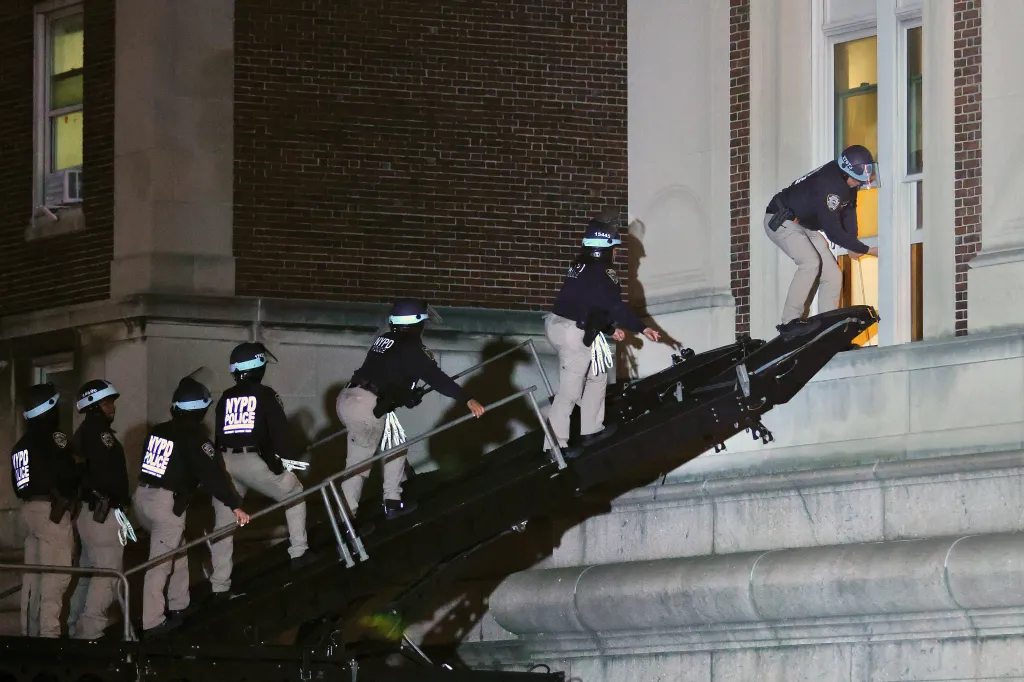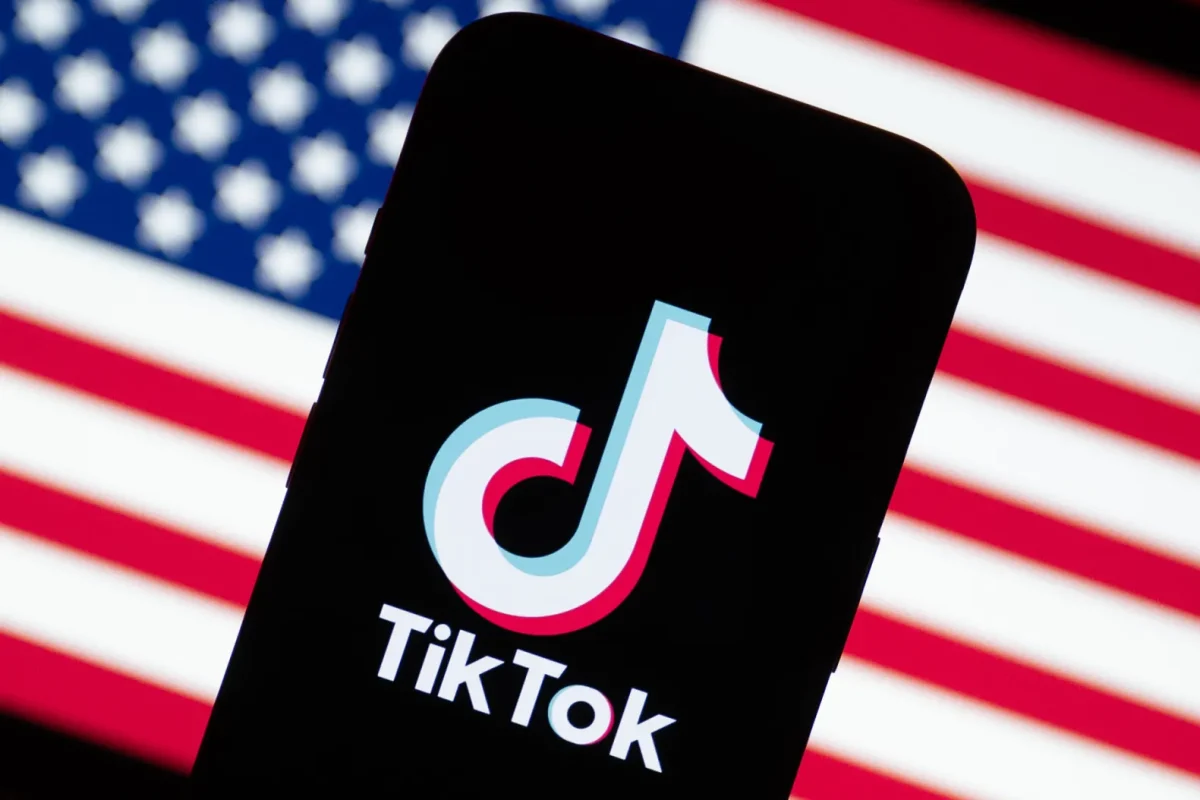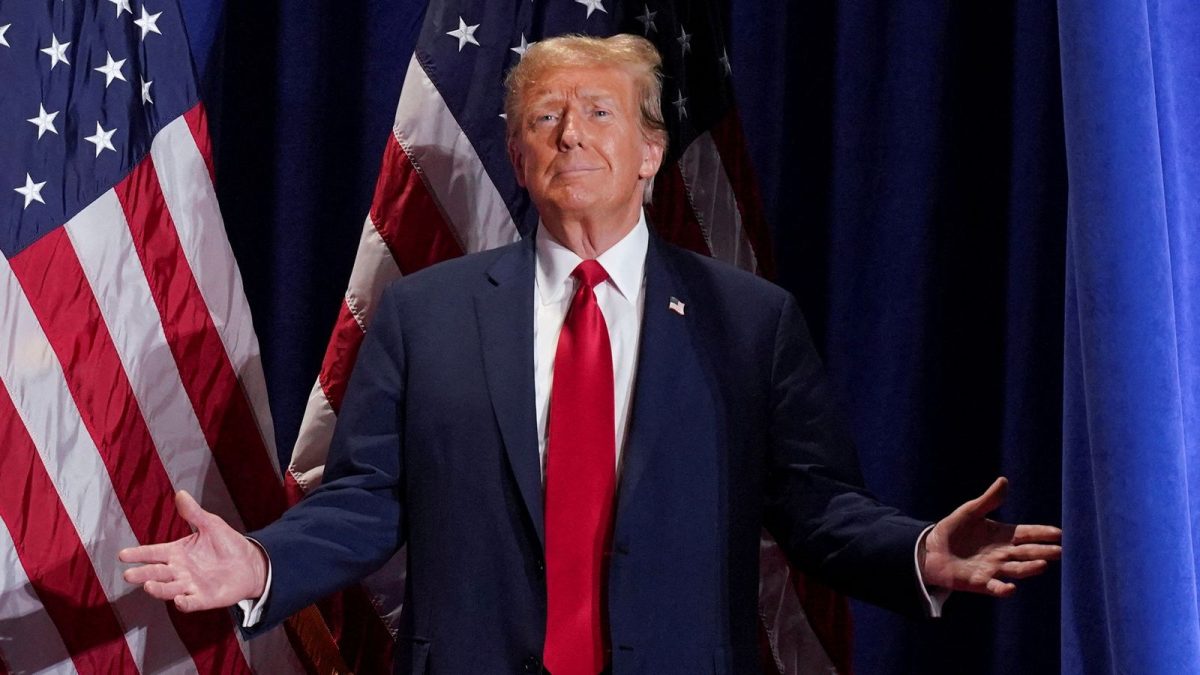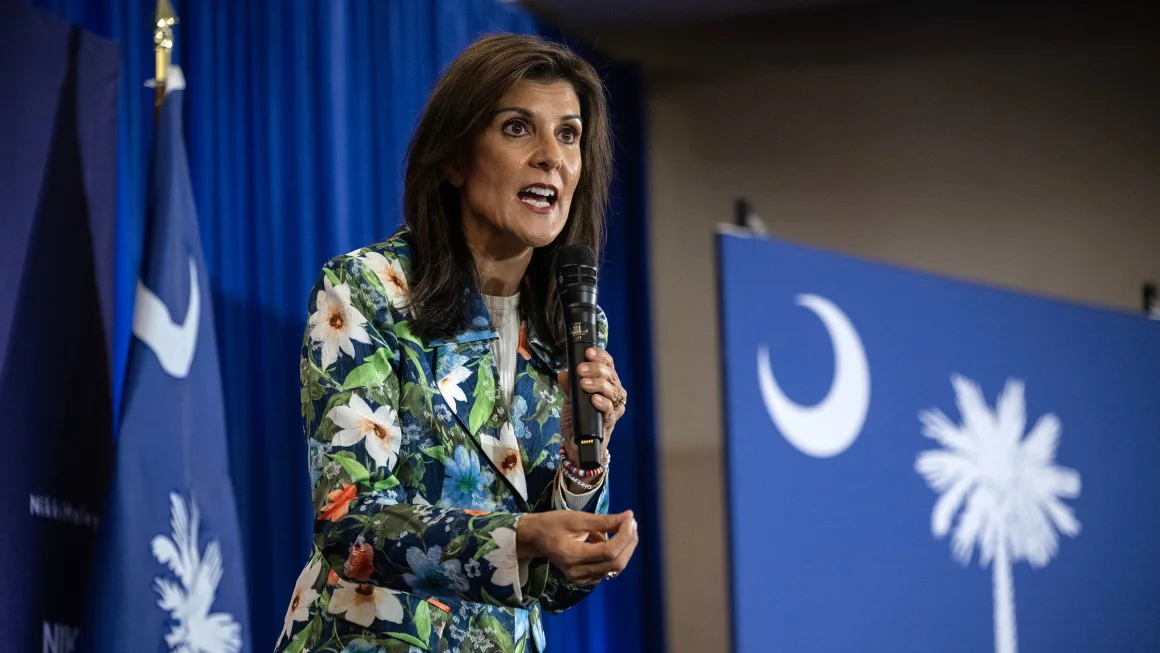In one year, Americans will go to the polls to elect a president, and with only two months until the first primary elections and caucuses, several notable candidates are making their case to be the next commander-in-chief.
Each party faces their own unique challenges in selecting next year’s presidential candidate. Republicans face a choice between their defeated former president and a selection of individuals hoping to be the next leader of their party.
Democrats likewise face growing questions whether their incumbent is fit to serve another term. The race is predicted to be close no matter who the parties nominate, but a selection of independent presidential candidates also have the potential to swing the election.
Republican Party
Donald Trump
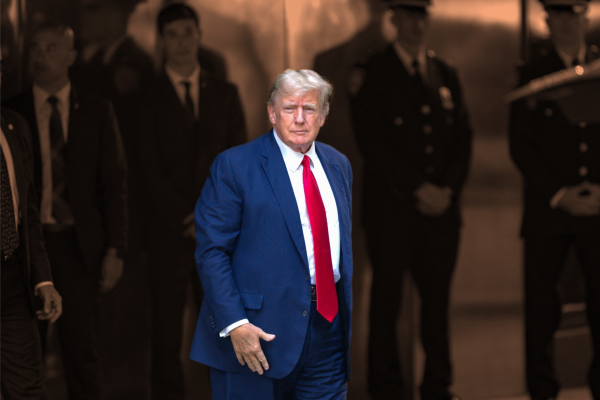
Defeated by now-President Joe Biden in the 2020 presidential election, and currently the front-runner for his party’s nomination, Donald Trump has still not accepted his election loss from three years ago, continuing to promote the claims of a rigged election that inspired a violent mob of his supporters to storm the U.S. Capitol Building on Jan. 6, 2021.
Despite his electoral loss, Trump has maintained steady backing from his supporters, using his influence to endorse his preferred candidates in the 2022 midterm elections; many of those candidates failed to win in critical swing state elections.
Among the current slate of presidential candidates, Trump was the earliest to enter the race, announcing his campaign immediately after the midterms.
This year has marked an eventful one for Trump, as he currently faces more than 90 felony charges in cases ranging from New York to Georgia.
In March, Trump became the first American president to be indicted after a Manhattan grand jury charged him with falsifying business records to cover up hush money payments made a porn actress, with whom Trump is alleged to have had an affair prior to becoming president.
In June, Trump was indicted in Miami after an FBI search found highly classified documents in his Florida villa. The charges brought against Trump allege he knowingly hoarded the documents after his presidency ended, and thus posed a national security threat.
A third round of indictments struck Trump in August, the culmination of an investigation into Trump’s efforts to have his 2020 loss reversed, which includes a failed pressure campaign to convince then-Vice President Mike Pence to decertify the election results (which Pence had no power to do) and Trump’s complicity in the Jan. 6 storming of the Capitol.
The fourth and last round of Trump’s many indictments came at the hands of the District Attorney of Fulton County, Georgia, who indicted Trump and more than a dozen of his associates on charges of unlawfully conspiring to charge the outcome of the 2020 election specifically in Georgia. The Georgia case primarily revolves around a “fake electors” scheme organized to reverse Biden’s victory in Georgia and a phone call Trump made to Georgia’s secretary of state where he pressured the secretary to “find [the] 11,780 votes” Trump needed to win the state.
Trump has pleaded not guilty to all charges levied against him, and has lambasted his indictments as politically motivated witch hunts. He will not go to trial until after several state level primary elections have already been held.
Despite the many criminal charges against Trump, he holds a sizable lead among Republican primary voters, and polls of a general election rematch against Biden show the two nearly tied or within the margin of error.
Trump has also refused to participate in the GOP debates because of his large lead in the polls.
Ron DeSantis
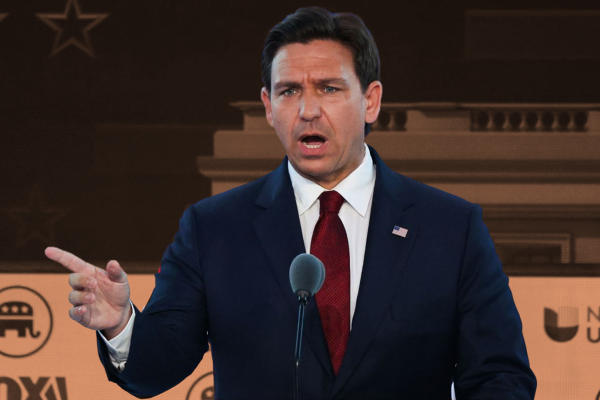
Florida Governor Ron DeSantis was long considered to be a favorite for the Republican presidential nomination before announcing his candidacy in May, but his actual campaign has been comparatively lukewarm.
Coming out of reelection with a near 20 percent margin of victory, some early polls in 2022 showed DeSantis defeating Trump in a theoretical head-to-head.
DeSantis became a conservative superstar during the pandemic after he bucked the advice of medical experts and lifted lockdown measures in Florida earlier than most other states.
He further doubled down on his conservative credentials by signing into law bills that prohibited the teaching of “woke ideology” in Florida schools.
Despite being an attractive choice for conservative Republicans wanting a nominee other than Trump, DeSantis did better in opinion polls before he announced his presidential campaign.
A perceived aloof awkwardness on the campaign trail has also impacted DeSantis’ poll numbers, with his critics latching onto to his inability to connect with voters.
DeSantis has also faced criticism for running as “Trump Lite,” a more palatable version of Trump’s politics without the former president’s high profile and controversial reputation, but at times DeSantis has run to the political right of Trump.
As Governor of Florida, DeSantis signed a ban on abortion after six weeks of gestation, something Trump has labeled too restrictive.
Both Trump and DeSantis have spoken of using harsher tactics to end the flow of illegal narcotics across the U.S.-Mexico border, with DeSantis stating that his administration would authorize the border patrol to shoot suspected drug smugglers “stone cold dead at the border.”
DeSantis has also voiced support for using American military force against drug cartels located in Mexico.
Nikki Haley
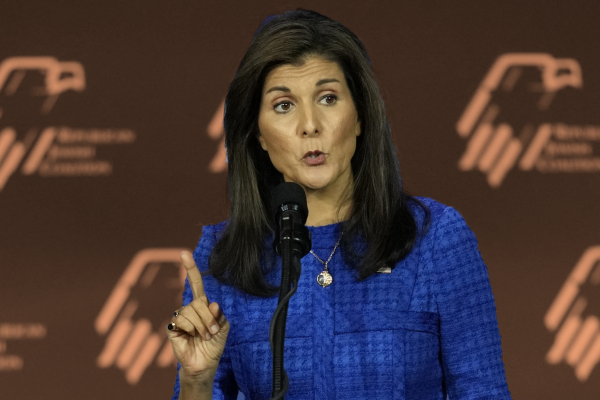
In light of DeSantis’ faltering poll numbers, former South Carolina Governor and former U.S. Ambassador to the United Nations Nikki Haley has seen her numbers grow, and in some cases overtake DeSantis.
Haley was the first major candidate to announce their run against Trump in February. Facing unlikely odds against a former president still popular with the political base, Haley remained positive saying, “I’ve never lost an election.”
She has defined herself in the party’s presidential field as being from the more old guard ideological wing of the party as opposed to the acolytes of Trump who have risen within the party since the former president’s election in 2016.
Haley has earned significant monetary support from the GOP donor class following her widely praised performances in the GOP debates.
Among the first stances she took during her campaign was support for term limits for members of Congress and “mandatory mental competence tests for politicians over 75 years old,” something that would apply to both former President Trump (aged 77) and President Biden (aged 81).
Haley has also taken a more nuanced approach on her abortion policy, repeatedly stressing seeking a “national consensus” on abortion policy.
She has avoided outlining the specifics of abortion policy under her administration, and has repeatedly stressed that any abortion bill should have the support of 60 U.S. senators before she would consider signing it into law.
Vivek Ramaswamy
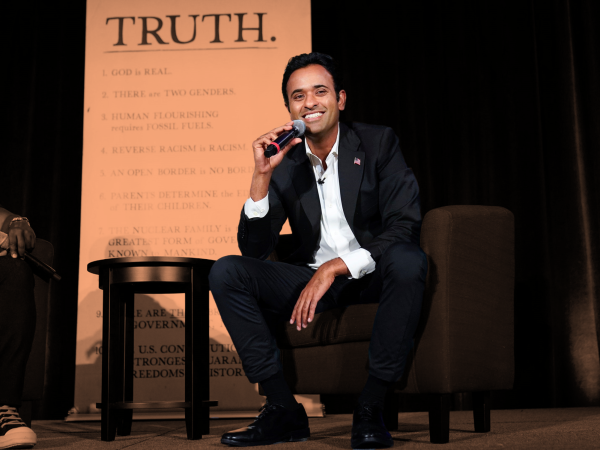
Juxtaposed to the more tamed campaign of Haley, with whom she has repeatedly clashed, biotech entrepreneur Vivek Ramswamy has defined himself as a firebrand in the presidential race.
An ideological acolyte of Trump and a supporter of Trump’s Make America Great Again and America First movements, Ramaswamy’s rise from a little known arch-conservative businessman to the upper tiers of the presidential field is mostly due to his unfiltered campaign rhetoric paired with an extensive media blitz.
Despite running against Trump, Ramaswamy has been a vocal defender of the former president, pledging to pardon Trump should the former president be convicted of a crime.
He has repeatedly called for the firing of around 75% of federal workers, and at times has suggested abolishing the Department of Education, IRS and ATF. Ramamswamy has also endorsed “term limits” for FBI agents while also advocating for abolishing the investigative agency altogether.
Ramaswamy has also taken an isolationist bent in terms of American foreign policy.
He has been the candidate most skeptical of continuing American military aid to Ukraine amidst the country’s invasion by Russia, suggesting instead that Ukraine should give Russia the
territory it currently occupies.
He also said that America should negotiate with Russia to end its partnership with China in exchange for refusing to admit Ukraine to the NATO military alliance.
Ramaswamy also claimed Ukraine isn’t a democracy and called their Jewish president, Volodymyr Zelenskyy, a “Nazi” during the third debate, something a campaign spokesperson later walked back.
Chris Christie
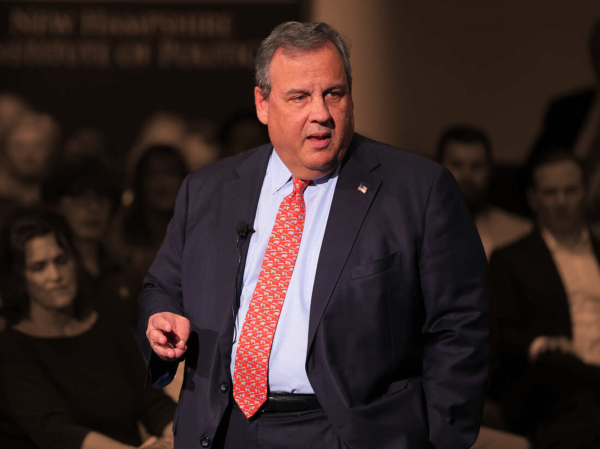
Former New Jersey Governor Chris Christie has been the mostly explicitly anti-Trump candidate challenging the former president for the Republican nomination, marking himself as the only candidate on multiple occasions to attack Trump by name.
In 2016, Christie ran in the Republican primary against Trump, but later dropped out and endorsed Trump after a poor showing in the New Hampshire primary.
Christie became a close associate of the president during the Trump administration, but soon evolved into a harsh Trump critic after Trump refused to accept his defeat in the 2020 election and the subsequent violent storming of the Capitol on Jan. 6.
Unlike other Trump critics who have mostly dropped out of the Republican primary due to low polling numbers, Christie has steadily cultivated support from moderate voters and those skeptical of Trump.
Christie has focused on campaigning in the state of New Hampshire, which will hold the nation’s first presidential primary election on Jan. 23. A win in New Hampshire could buoy Christie’s chances immensely.
At the first GOP debate held in August, Christie was one of only two candidates on stage who said they would not support Trump as the Republican nominee should he be convicted of any of the charges levied against him.
Christie has also positioned himself as a foreign policy hawk, advocating for further military aid to Ukraine, Israel, and Taiwan to defend themselves and deter further aggression from Russia, terrorist group Hamas and China respectively.
In the face of Russia’s invasion of Ukraine, Christie has called for more aid to the country to defeat Russia once and for all. Christie also made a visit to Ukraine and met with President Zelenskyy in August.
Christie also became the first Republican presidential candidate to visit Israel a month after Hamas militants attacked Israeli villages on Oct. 7, killing more than 1,200 people and taking another 240 hostage.
Democratic Party
Joe Biden
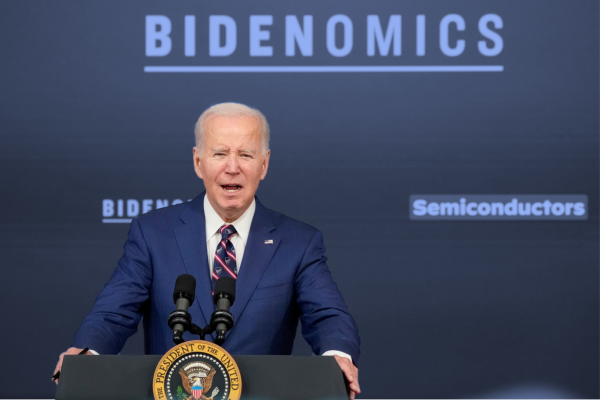
Despite defeating Trump by a seven-million vote margin in 2020, President Biden has suffered from consistently low approval ratings over the past two years of his administration. Since late 2021, Biden has not seen his approval rating among Americans top the forties.
A polarized American populace and a since diminished inflation crisis have not done much to improve the president’s standing.
Biden has also faced skepticism from voters in his own party. Several polls in the past year have shown majorities of Democratic voters wanting someone other than Biden as the party’s 2024 nominee.
Biden’s age in particular has raised concerns of his capability to serve as commander-in-chief for another four years.
At age 81, he is the oldest president in American history, and would be 86 by the time he would complete a second term.
The problem of his age has also put equally unpopular Vice President Kamala Harris in the spotlight. If something was to happen to Biden during his second term, Harris would become president.
This possibility has sparked conversations among Democrats, some say someone else should replace Harris as the vice presidential nominee, and attacks from Republicans, who say a vote for Biden would be a vote for “President Harris.”
Most of Biden’s reelection campaign thus far has focused on continuing the work of his current administration and rehashing campaign promises from 2020, mostly consisting of messaging about infrastructure and domestic job investment.
But not all of Biden’s 2020 campaign promises garnered praise. The chaotic withdrawal of American troops from Afghanistan in Aug. 2021 that resulted in an Islamic State suicide bombing which killed more than 170 Afghans and 13 American servicemen and the Islamic fundamentalist Taliban retaking control of the country, as well as Biden’s failed student loan cancellation plan remain dark blemishes on his administration.
Another element of Biden’s foreign policy may also cost him support from a key faction of his own party.
Many young American progressives have long favored the plight of Palestinians over the interests of Israelis, something in stark contrast to Biden’s longtime support of Israel while still voicing some concern for the well-being of Palestinians.
But now those same young progressives who readily supported Biden in 2020 have indicated major discontent with Biden over his support for Israel amid the Mideast nation’s war of attrition against Hamas that has killed thousands of Palestinian civilians in the Gaza Strip.
Dean Phillips
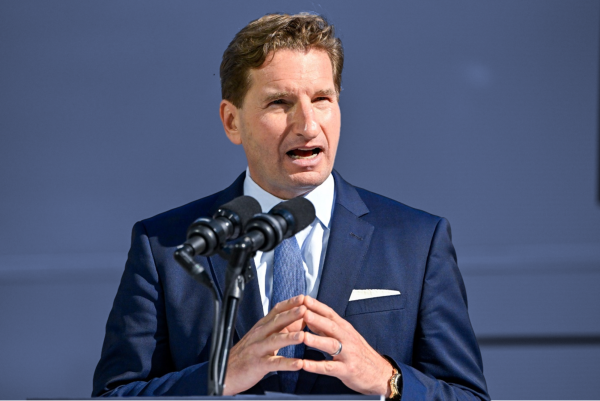
In light of Biden’s vulnerable incumbency, Minnesota Congressman Dean Phillips launched a last-minute campaign to challenge Biden in October.
However, Phillips’ run is not derived from any ideological disagreement with the president. Phillips has repeatedly stressed how he agrees with Biden’s policy decisions.
Rather, Phillips wants someone else besides Biden to be the Democratic nominee because he views Biden as too unpopular to win, and argues Biden would likely lose to Donald Trump in the election.
Phillips may have some edge in one particular state, New Hampshire, a state where Biden won’t appear on the primary ballot.
For the 2024 primary season, the Democratic National Committee (DNC) decided to change the official order of the state by state elections.
Instead of New Hampshire being the coveted first in the nation primary, the DNC chose the more racially diverse South Carolina to be first.
However, the New Hampshire secretary of state, the state’ s election chief, went against the request of the DNC, and scheduled the primary for the week before South Carolina.
In protest, the DNC, who have backed Biden for reelection, decided to not file to put Biden’s name on the ballot.
While some New Hampshire Democrats are organizing a Biden write-in campaign to ensure the president doesn’t lose the state, Phillips remains the most well known name on the ballot, and has heavily focused on campaigning in New Hampshire.
Despite broadly agreeing with the president, Phillips has diverged from Biden on a few policy positions, criticizing the president’s policies on the Mexican border and inflation.
Phillips is currently the most viable candidate running against Biden, who nonetheless still maintains a large lead in polls.
Independents
Robert F. Kennedy Jr.
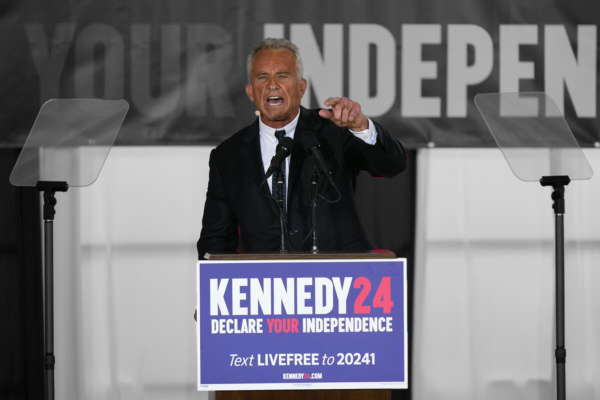
The presidential race is not limited to just two parties, some candidates, such as Robert F. Kennedy Jr. are running as the nominee of no party.
Kennedy, a former environmental lawyer, is the son of late Senator Robert F. Kennedy and the nephew of President John F. Kennedy.
He originally ran in the Democratic primary before dropping out and announcing his independent bid in October.
Kennedy is notorious for promoting anti-vaccine conspiracy theories and is one of the most prominent promoters of the baseless conspiracy theory that vaccines cause autism.
Kennedy also embedded himself in controversy during the COVID pandemic by comparing vaccine requirements to the Holocaust. Kennedy also claimed in July that the virus was “ethnically targeted” to spare Jewish and Chinese people.
It is not just Kennedy’s conspiratorial views that have garnered him attention, but the surprising amount of support the anti-vaxxer garners in presidential polls.
Before dropping out of the Democratic primary, Kennedy polling in the double digits against President Biden, but never got much above 15 percent support.
When put against Trump and Biden in a theoretical 2024 match-up, Kennedy has polled as much as 20 percent nationwide, something unheard of for an independent presidential candidate.
Kennedy’s levels of support also extend to key battleground states like Pennsylvania, Michigan and Georgia.
He is likely to play spoiler in the election should Trump and Biden be the major party nominees, as none of the three would win a majority of the vote, but one of them would win a plurality.
But who exactly would benefit from Kennedy’s spoiler candidacy is unclear.
Kennedy’s support is mostly derived from disaffected Democrats, ultraconservative Republicans, and independents skeptical of the two major parties.
Despite originally running as a Democrat Kennedy has associated himself with far-right celebrities such as former Fox News personality Tucker Carlson and former Trump advisers Steve Bannon and Michael Flynn. Most polls also show him siphoning off more support from Trump than Biden, but still leave the two other candidates neck-and-neck.
Cornel West

Left-wing philosopher Cornel West currently polls in single digits, but much like Kennedy, has the potential to swing the election.
West originally began his campaign in June, running to be the nominee for the little-known left-wing People’s Party. But he later switched to the Green Party, the third party typically favored by voters left of the Democratic Party. By October, West abandoned a political party altogether and began an independent run.
West is unlikely to win the presidency, but has presented himself as the candidate for progressives and other left-leaning individuals disillusioned with Biden.
Amid Biden’s support for Israel, progressives have fled from Biden’s side and are considering voting for West.
West has been vastly more pro-Palestinian. Although he condemned the killing of Israeli civilians by Hamas in the Oct. 7 terror attack, West has said that Israel and the U.S. are “primarily responsible” for the violence in the Middle East.
He has accused Israel of perpetrating a “genocide” against Palestinians in the Gaza Strip by conducting large retaliatory strikes against Hamas, and called for a ceasefire.
Many Biden supporters fear West may swing the election in Trump’s favor, similar to how 2016 Green Party nominee Jill Stein siphoned off votes from Hillary Clinton and resulted in Trump winning the states of Pennsylvania and Michigan.


